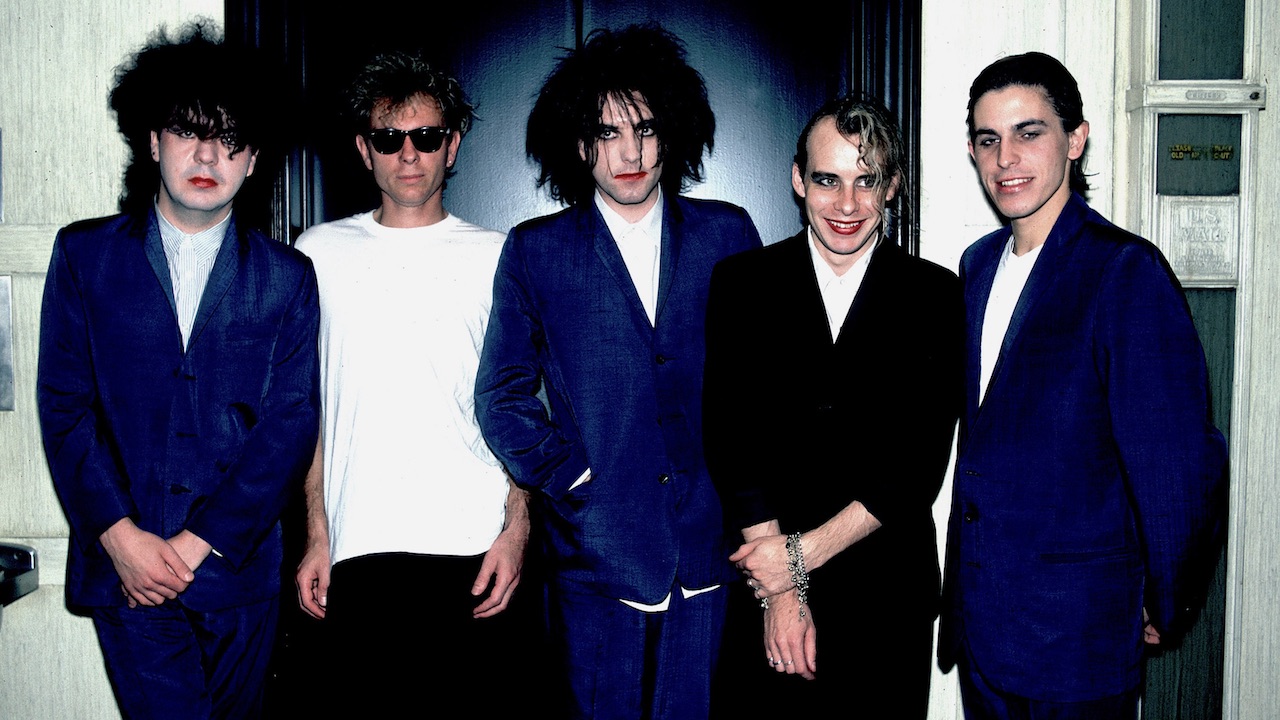
One day in 1975 the careers officer at St Wilfrid's Catholic School in Crawley, West Sussex asked 16-year-old Robert Smith and his classmates about their future aspirations.
“I said I wanted to be in a pop group and they all giggled,” Smith later recalled. “Another boy said he wanted to be an astronaut and they giggled at that too.”
One year on, Smith was determined to show the unbelievers that he wasn't joking, booking his band Malice, also featuring future The Cure bandmates Porl Thompson on guitar and Lol Tolhurst on drums, a gig at St Wilfrid's school hall, supporting a band called Amulet. The price of admission for what was only Malice's second show was just 30 pence. Smith didn't have the confidence to front the band, so Malice recruited a local journalist named Martin Creasy to handle vocals without a) ever having heard him sing and b) ever rehearsing with their newest member. Perhaps unsurprisingly, the group's set - which included covers of Thin Lizzy's Jailbreak, David Bowie's Suffragette City and Jimi Hendrix's Foxy Lady - was an unmitigated disaster... not least because Creasy insisted on performing while wearing a motorcycle crash helmet, making his vocals completely incomprehensible.
“We bluffed our way in by saying we are gonna play jazz-fusion, then started playing loud, fast music,” Robert Smith told Melody Maker's Simon Reynolds in 1992. “And that made us a punk band, so everyone hated us and walked out, but we didn't care cos we were doing what we wanted. I suppose all that punk means to me is: not compromising and not doing things that you don't want to do.”
This uncompromising attitude would stand Smith in good stead. In 1977, his band, now called Easy Cure, answered an advert in Melody Maker placed by the German record label Hansa, inviting new bands to showcase for them in London. As Easy Cure seemed to be going nowhere, slowly - “We were playing about 50 songs at the time, mostly in pubs and to people who didn't care if we fell over and died,” Smith recalled to Trouser Press in 1981 - they approached the audition with a 'what's the worst that can happen?' outlook, and were astonished to be offered a deal. They signed the contract without a second thought. It quickly became apparent though that the label and the group wanted different things - specifically the group refused to bow to pressure to release an attention-grabbing cover version as an introductory single - and in the spring of 1978, the two parties agreed to part ways, by somewhat mutual consent. Smith, unfazed, asked Hansa to relinquish their claim to the rights to the band's original songs.
“And they went, ‘Err… Ok. Not even people in prison are gonna like this stuff',” Lol Tholhurst recalled to MOJO's Keith Cameron.
The Cure went on to sign with Fiction Records, a subsidiary of Polydor. In 1980, they would score their first UK Top 40 single, A Forest, from their second album, Seventeen Seconds, and never looked back. Not that Smith's disparaging attitude to his paymasters improved, initially at least.
“When we did Jumping Someone Else's Train, Polydor, who distribute Fiction in England, said, 'This is it, a Top 10 single!' and it went nowhere,” he told Trouser Press. “They also said they couldn't really hear A Forest as a single, and it was a hit. Polydor doesn't understand us. One person likes us; the rest say, 'This is your year, boys' – and after we leave, 'Who was that band?'
“The critics didn't understand us either,” the singer noted, “but we don't pay much attention.”







